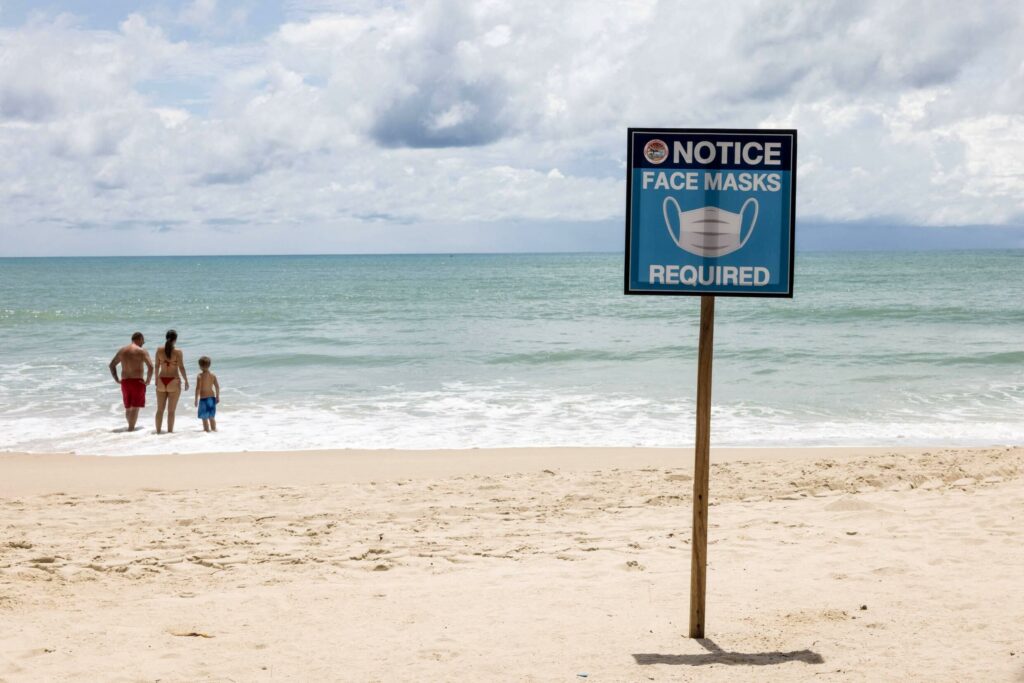Read moreFrance sees a slight rebound in Covid-19 with the emergence of ‘Eris’ variant
A WHO report published in June 2024 found that 4.9 million older adults across 60 countries had received a vaccine dose in the first quarter of the year, corresponding to a 0.42 percent uptake rate. Among healthcare workers, this figure was just 234,000 people across 40 reporting countries – an uptake rate of 0.17 percent.
“WHO recommends that people in the highest-risk groups receive a Covid-19 vaccine within 12 months of their last dose,” Ghebreyesus said at a press conference in Geneva.
Dr Nilufar Ahmed, a psychologist and senior lecturer in social sciences at the University of Bristol, said that declining media coverage of the virus and limited public health messaging had likely played a part in the drop in vaccinations.
“I think from a psychological point of view it just hasn’t been in the news as much,” she said. “That’s partly because of the effectiveness of the first vaccination campaign, which was so successful that it made people feel they are fully vaccinated.”
Ahmed said that beyond vaccination levels, other public health measures that had been recommended – if not mandatory – throughout the earliest years of the pandemic were also struggling to find public support.
“It’s very low in public communications,” she said. “We see very few people masking, and the response if you see someone wearing a mask is that you assume they must have Covid – not that they’re wearing it as a preventative measure.”
But these measures could still save lives. A study published in May 2024 strongly suggested that wearing masks on long-haul flights played a significant role in stopping the spread of Covid-19. On flights without enforced masking, long-haul flights saw a 25.93-fold increase in Covid-19 transmission rates compared with short flights. On flights with strict masking policies, though, no transmission was detected.
“Our findings … suggest that aircraft-acquired transmission is not inevitable if masking is strictly enforced,” the study read, stressing that the data analysed was taken from before the outbreak of the more contagious Delta and Omicron variants and mass vaccination campaigns. “On long haul-type flights where enforced masking took place and meals were served, there were no reported aircraft-acquired cases during contact tracing and follow-up.”
04:58
Accept
Manage my choices
science © FRANCE 24
The true death toll of those early years of the pandemic remains stubbornly out of reach. The WHO reported earlier this year that as of May 26, 2024, there had been more than 775 million confirmed Covid-19 cases and more than 7 million deaths across the world since the virus was first detected in Wuhan, China in late 2019. That figure likely hides a grimmer reality – the same report says that, judging by viral loads found through wastewater surveillance, the real case load could be anything from two to almost 20 times higher.
“Covid-19 remains a major threat, and WHO urges Member States to maintain, not dismantle, their established Covid-19 infrastructure,” the report concluded.
For Ahmed, the disconnect between these WHO warnings and the public messaging around the virus across many countries reflected a “real reduction” in the messaging around how deadly Covid-19 could be.
“It needs exceptional care because we still don’t know the long-term effects, and what we do know is it has a number of associated illnesses, and we still don’t know the implications of that,” she said. “So treating it as exceptional feels like the most appropriate way forward.”
“Otherwise it becomes something like the flu, which is deadly, but we think of it as something that is only deadly for certain populations, and which we start to talk about as though it’s just a bad cold – when it fact the flu kills thousands of people.”
For its part, the WHO is still recommending that travellers wear a well-fitting mask, clean their hands regularly, get tested prior to travelling if they show Covid-19 symptoms and, if sick, consider staying home. And while being fully vaccinated is no longer a pre-requisite to most international travel, it still comes first on the WHO’s list of travel advice.
Ahmed said that pushing for more stringent public health measures around Covid-19 was a hard sell for governments desperate to distance themselves from the darkest days of the pandemic.
“It’s been difficult to keep that message because it’s always felt like an imposition on people. It’s something that people felt restricted their freedom – the messaging was not, ‘let’s manage the illness’,” she said.
“It’s very difficult for people at this time of year to think about the pandemic and the lockdowns – it still weighs heavily on people,” she said. “For some people, the avoidance of it is almost the avoidance of getting back to those days of lockdown.”
Source link : https://www.france24.com/en/health/20240715-as-europe-prepares-for-summer-holidays-who-warns-that-the-covid-19-era-is-far-from-over
Author :
Publish date : 2024-07-15 12:53:50
Copyright for syndicated content belongs to the linked Source.
